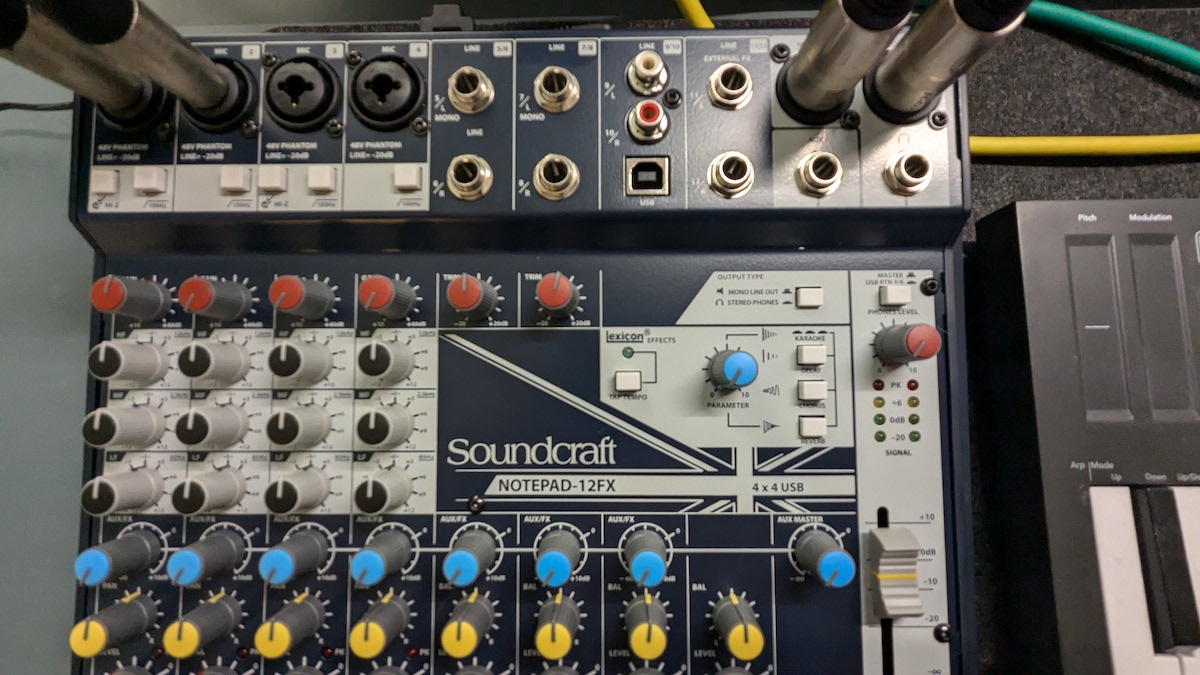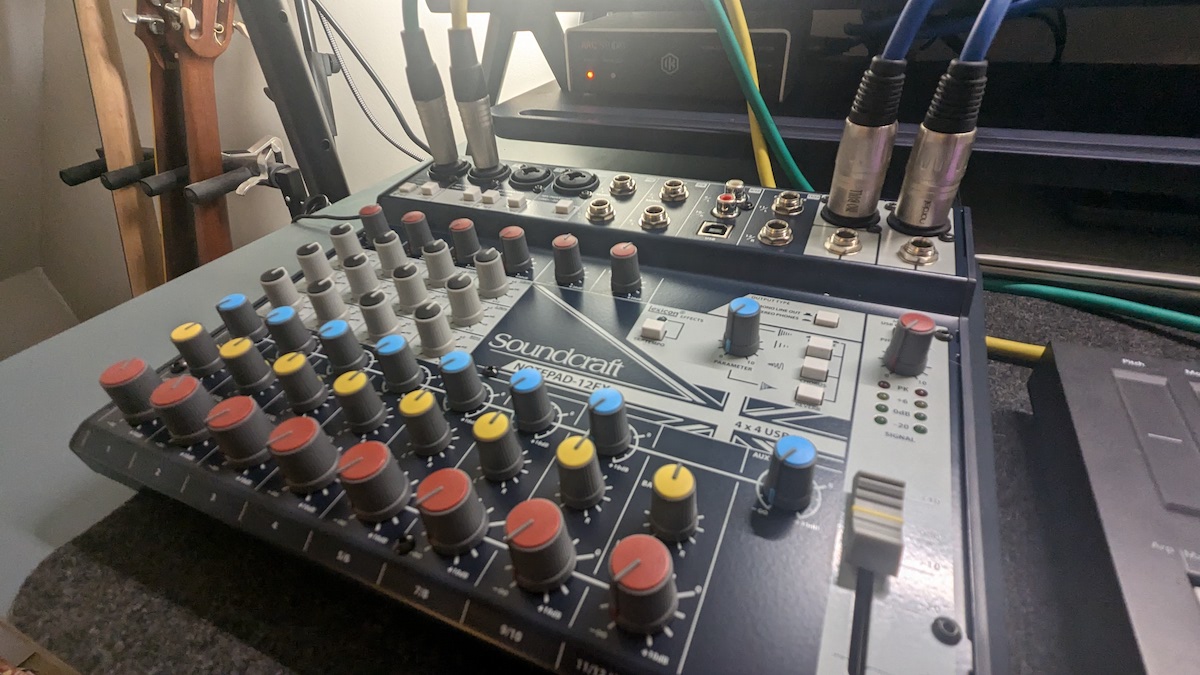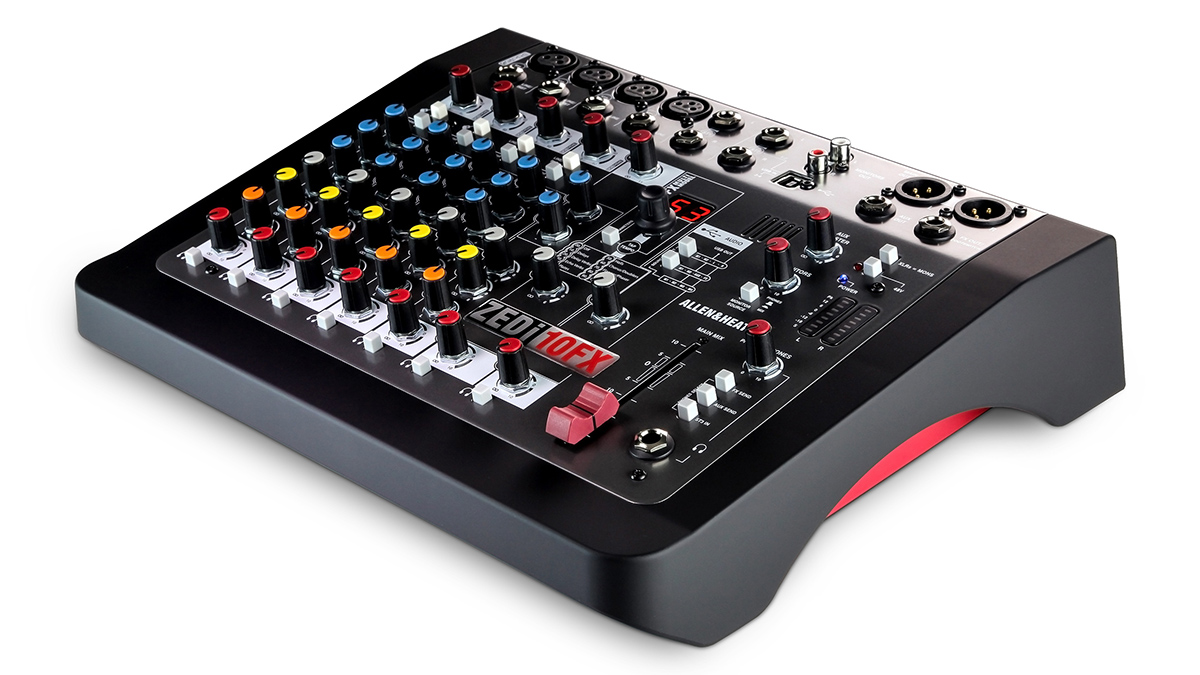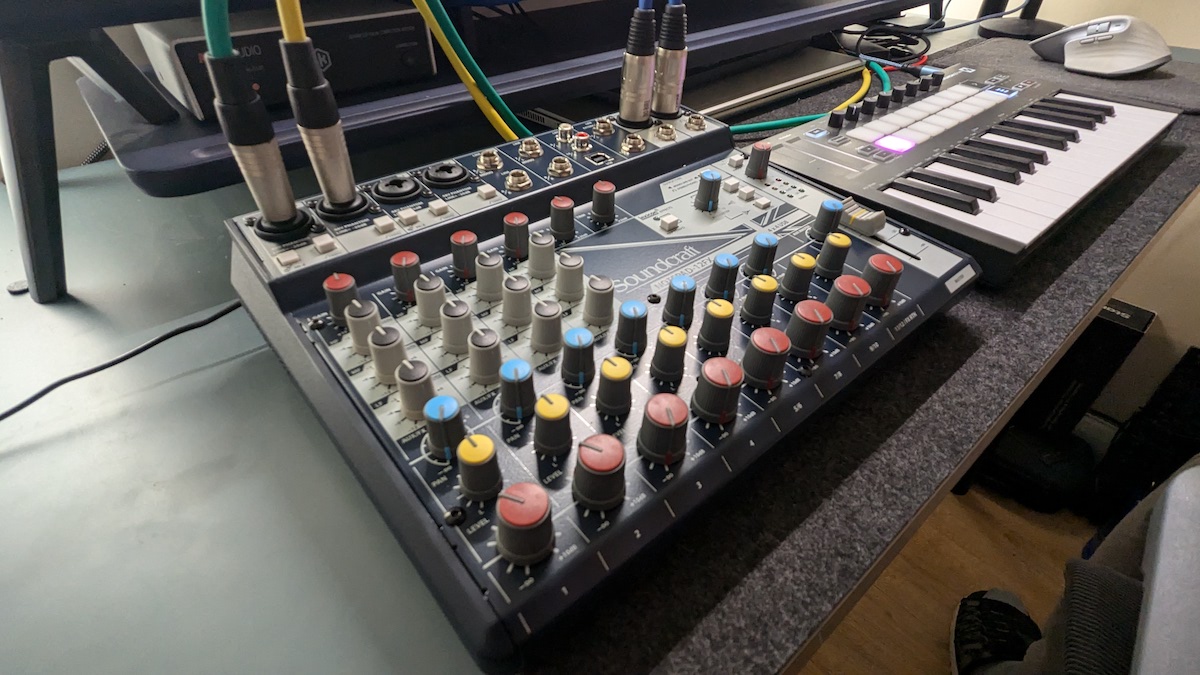MusicRadar Verdict
The little Soundcraft is compact, for sure, but has enough in the way of basic features and simple usability to make it a superb choice for smaller home studio setups.
Pros
- +
Crystal clear sound quality
- +
Compact footprint
- +
USB functionality
Cons
- -
FX controls are limited
- -
No faders
MusicRadar's got your back
With the growth of DAW-less setups, small-footprint home studio mixers have enjoyed something of a renaissance. As our collections of synths, drum machines and samplers grow, so too does our need to connect them somewhere so they’re ready for action when the inspo hits. Even as audio interfaces have grown in capability, having a cheap, basic mixer can be hugely beneficial for studios and live performances.
The Soundcraft Notepad-12FX we’re looking at today positions itself as a compact yet powerful mixing solution for musicians and podcasters, bridging analogue sound quality with USB connectivity. Two boxes ticked. Designed for both home studios and portable use, this mixer combines pro-level sound in a space-efficient package. Featuring Soundcraft’s well-respected entry-level preamps, and some bona fide Lexicon effects built-in, the Notepad-12FX is ideal for those looking to add professional sheen to their recordings without excessive bulk.
With the Notepad-12FX, Soundcraft promises a straightforward and effective tool for smaller setups, making it perfect for those balancing quality sound with simplicity in a home studio environment. But does it make sense for your studio? Let’s take a look.
What Is It?

The Soundcraft Notepad-12FX is a compact analogue mixer that merges traditional mixing controls - i.e. volume, panning and basic EQ - with modern connectivity options, making it ideal for small home studios, solo musicians, and podcasters who need straightforward, quality sound processing. It features 12 channels, including four mono channels equipped with XLR and 1/4-inch combo jacks, and three stereo line channels, all housed in a metal chassis designed for durability and portability. At a smidgen over two kilograms, and with dimensions that make it easy to transport, this mixer is ready to handle recording or live work in small spaces or on the go.
Key features include Soundcraft’s well-known preamps, which provide a clean, balanced sound for recording vocals, guitars or line-level sound sources. Channels 1 through 4 are especially flexible, with 3-band EQ for shaping the sound of vocals or instruments.
Additionally, channels 1 and 3 offer Hi-Z inputs, allowing direct connection for instruments like electric guitars or synths without requiring a DI box. This makes it ideal for users of amp sims, for example, amplifying the sound without adding a unique colour of its own. The mixer also has an effects section powered by Lexicon, offering reverb, delay, and chorus effects to add depth or atmosphere. These can be applied as needed on various channels, providing options to enhance vocal tracks, instrument recordings, or a complete mix. More on this later though.
In terms of outputs and routing, the Notepad-12FX includes balanced XLR main outputs, an aux send, and a headphone jack with individual level control. Its USB interface provides a 4x4 audio connection to your DAW, which is plug-and-play with Mac, although Windows users will need to install a driver. Adding USB functionality is a strong feature for podcasters and musicians looking to record and play back tracks easily within a digital audio workstation, particularly at this price point, however, it stops short of being a full audio interface so recording all 12 channels simultaneously is not possible here.
Want all the hottest music and gear news, reviews, deals, features and more, direct to your inbox? Sign up here.
For its price, however, the Soundcraft Notepad-12FX delivers capable quality and versatility and is ideal for those seeking a no-fuss, compact mixer with built-in effects and USB recording capabilities.
Performance & verdict

In a home studio setting, the Soundcraft Notepad-12FX showed its strengths by offering everything I needed, and nothing I didn’t. Hooking up a couple of small analogue synths to the instrument inputs was straightforward, resulting in a rich sound that’s well-managed by the mixer’s preamps and EQ. The built-in Lexicon effects add extra dimension to the sound, which is especially useful for creating a fuller mix when working with electronic instruments.
Maybe don’t get too hung up on the Lexicon angle though; while the badge is resplendent on the front of the unit, single-knob control means you won’t be sculpting ambient soundscapes on the little Soundcraft. That’s fine though - for adding a bit of reverb to your output, they’re perfectly serviceable.

Yamaha MG10XU
Allen & Heath ZEDi-10FX
Behringer Xenyx 1202FX
For vocals, the Shure MV7 shines through the Notepad-12FX preamps, capturing clarity with the option to add reverb or delay for subtle vocal enhancement. We can see this mixer being popular with singer-songwriters performing small-scale gigs, for example, but anything being bought with larger venues in mind might be better served with something higher up the food chain.
Overall, the Notepad-12FX’s performance is solid, however, the limited 3-band EQ (on only four channels) and lack of fader control might limit options for users accustomed to larger consoles. For example, users seeking detailed EQ on every channel may find it limiting in comparison to mixers like the Yamaha MG10XU, which offers more dedicated control per channel, albeit in a larger unit. Another aspect where it could come up short is in live performance setups that require more comprehensive effects processing or advanced routing, but it’s hard to criticise too much given the Notepad’s small size and equivalent price tag. We should reiterate too that while its 4x4 USB interface supports recording, it doesn’t allow simultaneous independent channel processing of all 12 channels in the same way more advanced audio interfaces do.
In summary, the Notepad-12FX is well-suited to home studio environments and small live setups, excelling for users looking for a straightforward, high-quality analogue sound with basic digital flexibility. Its simplicity is both a strength and a limitation: ideal for solo musicians, podcasters, and compact studio setups, but potentially restrictive for complex, multichannel projects or detailed live sound environments.
For its price point, however, it’s a fantastic blend of features, portability, and audio quality that will serve many users well in crafting great-sounding mixes in and out of the studio.
Hands-on demos
Kettner Creative
Expert Island
Specification
- Key features: 4 x mono channels with mic preamps, Hi-Z, low-cut and 3-band EQ; 4 x stereo channels; 4-track USB recording/playback; Lexicon effects
- Contact: Soundcraft
Chris Corfield is a journalist with over 12 years of experience writing for some of the music world's biggest brands including Orange Amplification, MusicRadar, Guitar World, Total Guitar and Dawsons Music. Chris loves getting nerdy about everything from guitar and bass gear, to synths, microphones, DJ gear and music production hardware.


